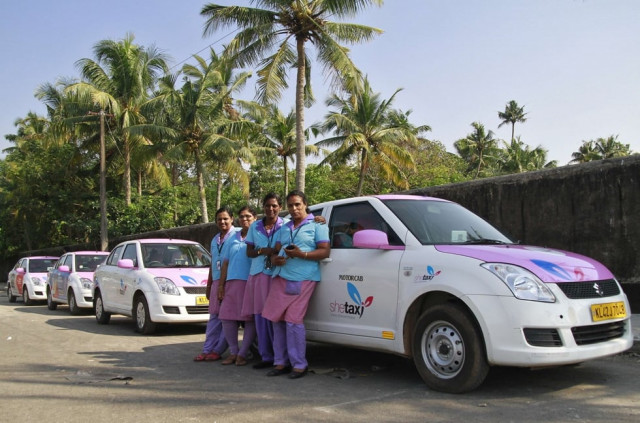India to boost women taxi drivers, spurred by Uber rape claim
Alleged rape of a woman passenger by Uber taxi driver once again wavers confidence in India transport system

Last year, the southern state of Kerala launched 'She Taxis', a fleet of 40 pink taxis run by women, and fitted with wireless tracking gear and panic buttons linked to call centers.
Now the service has become a model for Prime Minister Narendra Modi's government to replicate nationwide, its chief executive says. "The Delhi incident shows the need for 'She Taxis' all over the country," PTM Sunish told Reuters.
'She Taxis' has ferried 24,000 people on about 10,000 trips since Nov. 2013. Demand so far exceeds supply that as many as half of callers have to be turned away, Sunish said.
"I feel secure and the family is satisfied," said Aswathy Sreekumar, 25, a technology worker who has used the service for seven months, after finishing work at midnight.
"Otherwise, I keep getting calls from my parents."
Rising sex crimes have prompted Indian states and small firms to launch taxi services run by women. The trend grew after December 2012 protests over the rape of a young woman on a moving bus in the capital, New Delhi, and her subsequent death.
Tougher laws and promises of better policing have proved ineffectual. India's public transport is the fourth most dangerous in the world for women, and nighttime safety ranks second worst, a recent poll showed.
Women commuters face sexual harassment and public transport is seen as risky.
"The Uber incident reinforces that you are safer when a taxi is driven by a woman. People would be keener now," said social activist Susieben Shah, who started Priyadarshini Taxi Service in 2010 in Mumbai. Now it aims to expand to New Delhi and the southern tech hub of Bengaluru.
Another company, Sakha Cabs, with 14 taxis in the capital, plans to expand in nearby western Jaipur and in eastern Kolkata.
Still, expansion is slow. Reluctant investors fear the tiny number of women drivers will brake future expansion, and India's male-dominated social structure will deter aspirant drivers.
After the Uber incident India is stepping up support for such training, an official of the Ministry of Women & Child Development told Reuters.
But critics say better security is the answer.
"Government always resorts to knee-jerk reactions," said Ranjana Kumari, director of the Center for Social Research. "Failure in law and order implementation cannot be compensated by such measures."



















COMMENTS
Comments are moderated and generally will be posted if they are on-topic and not abusive.
For more information, please see our Comments FAQ